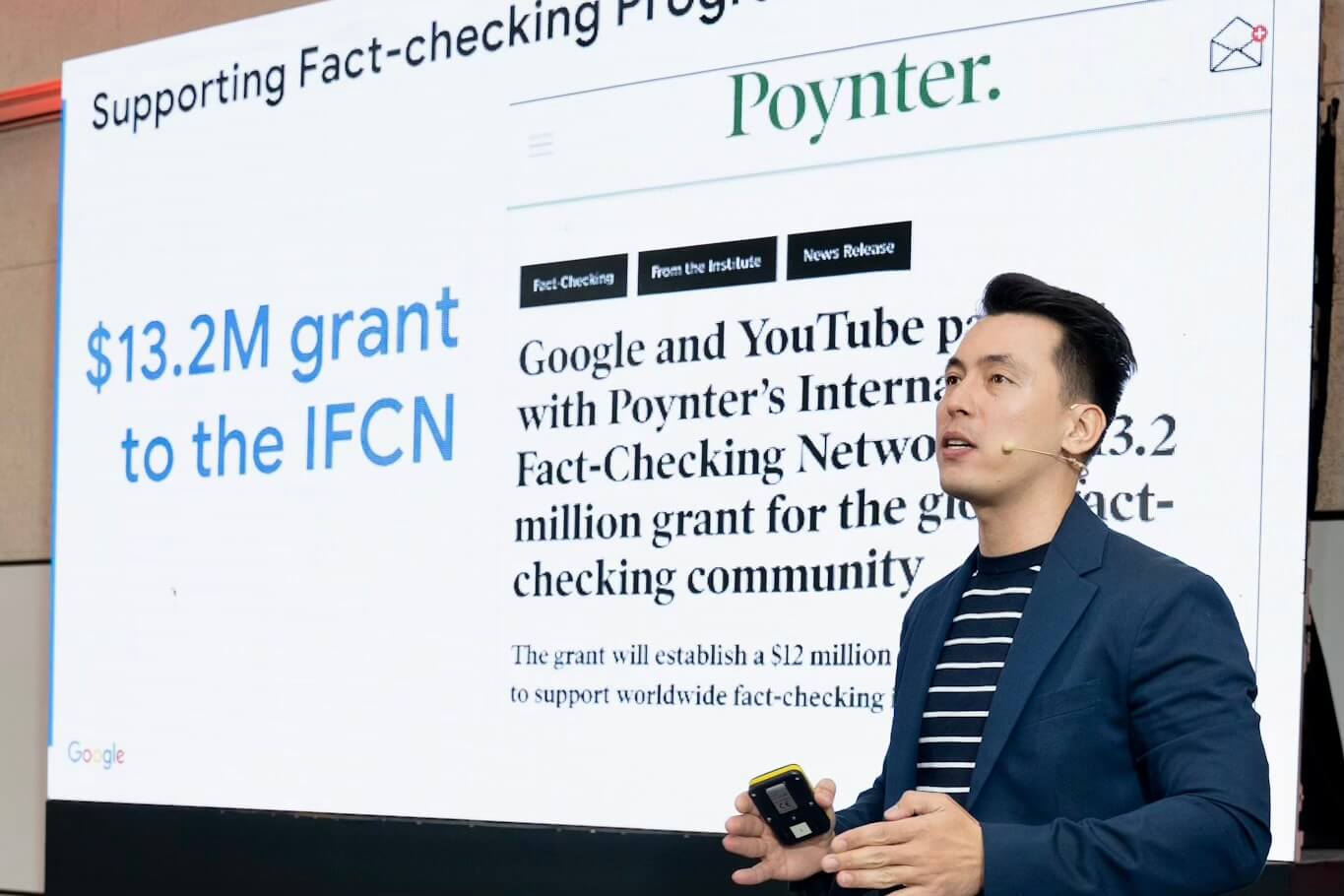How the Philippines is Leading the Charge in Online Fact-Checking
By: The Good News Pilipinas Team
|
Published on: May 2, 2023

Google Philippines Head of Communications and Public Affairs Mervin Wenke details the many ways Google and YouTube combat misinformation. Google Philippines photo.
In an age of misinformation, the Philippines has emerged as a global leader in the fight against fake news. According to Google Trends, the country ranks first in the world for searches on “fake news” and “misinformation” in 2023. It also places in the top ten globally for “disinformation” and “fact-checking” searches. This growing interest signifies that Filipinos are increasingly curious about these crucial issues and eager to better understand them.
Mervin Wenke, Head of Communications and Public Affairs at Google Philippines, highlights the significance of access to reliable information and content. He states that Google aims to empower media, creators, and fact-checkers with the tools and opportunities necessary to help people online form well-informed opinions.
As part of its commitment to promoting news and media literacy in the Philippines, Google and YouTube have introduced various tools and strategies to combat misinformation:
- Google Search “About This Result” feature – Now available in Filipino, this feature provides users with more information about a specific search result by clicking the three dots beside the result’s URL. The information pane offers additional context to help users understand the source of the information and how Google’s systems determined its relevance to their query.
- Breaking News on YouTube – During significant breaking news events, a dedicated shelf appears on YouTube’s homepage to ensure viewers have immediate access to authoritative news sources.
- Information Panels – When searching or watching YouTube videos related to misinformation-prone topics, such as the moon landing or “the Earth is flat,” users will see an information panel linked to third-party sources at the top of their search results or under the video they’re watching.
- Community Guidelines – These guidelines serve as the rules for behavior on YouTube and apply to all content types, including unlisted and private content, comments, links, Community posts, and thumbnails. Creators receive a strike for each Community Guideline violation, and three strikes within 90 days result in permanent removal from YouTube.
- Fact-checking Training – Google regularly conducts capacity-building workshops to help media assess online information. Over the past several years, Google has trained more than 177,500 journalists across 17 countries in the Asia Pacific, including the Philippines.
- Fact-checking Grants – Google and YouTube offer grants to organizations to strengthen fact-checking efforts. In November 2022, they announced a $13.2M grant to the International Fact-Checking Network (IFCN) at the Poynter Institute, launching a new Global Fact-Check Fund. This marks Google and YouTube’s single largest grant in fact-checking.
The Fund is open to applications from IFCN’s network of 135 fact-checking organizations in 65 countries, including the Philippines, covering over 80 languages. Applications for the Fund’s first phase, called BUILD, are open until May 15, 2023. Interested applicants can submit their applications here.
In addition to supporting fact-checking initiatives, Google is committed to helping media and creators succeed on platforms like Shorts, ensuring quality content and journalism thrive in popular new formats.
Wenke believes that media and creators play a vital role in connecting more Filipinos online to trusted information, even in short video formats. The Philippines’ dedication to fighting misinformation sets a powerful example for the global community.
Google has been involved in training journalists and encouraging students to fact-check information on the internet.
SHARE THIS ARTICLE to help others find reliable information on the internet.
Good News Pilipinas is a Lasallian Scholarum Awardee. TELL US your good news story tips by messaging GoodNewsPilipinas.com on Facebook, Twitter, Instagram, or e-mail editor@goodnewspilipinas-com-256437.hostingersite.com and WATCH Good News Pilipinas TV YouTube & Good News Pilipinas TikTok for more Filipino Pride stories!
